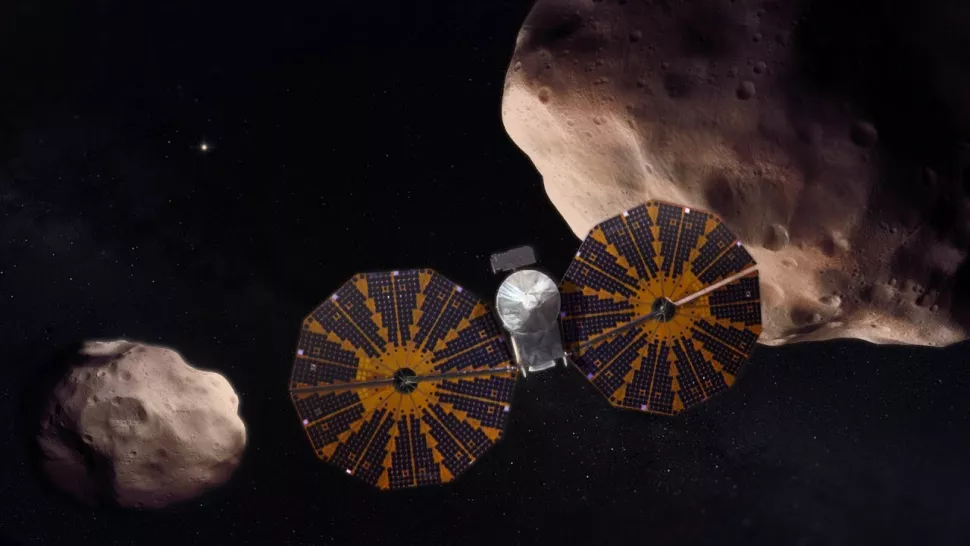
https://www.space.com/nasa-lucy-trojan-asteroid-mission-october-launch
NASA’s Lucy asteroid probe is set to launch atop the United Launch Alliance Atlas V rocket on October 16. The probe will spend 12 years in space and visit 8 different asteroids, more asteroids than any other probe in history. Lucy will be traveling farther from the sun than any other solar-powered spacecraft in history. This space vehicle could collect data that changes the world. However, with this incredible opportunity comes significant cybersecurity threats.
Lucy’s mission is to study the Trojan asteroids, space rocks that loop around the sun in Jupiter’s orbit. Lucy is the first probe to study any of the 7,000 identified Trojan asteroids. Scientists believe data collected from these asteroids might help us understand the formation of planets and the origins of life. The results of this mission could very easily change the world, so it is crucial to consider the possible cybersecurity concerns.
The space vehicle has been preparing for flight for the past 8 weeks at NASA’s Kennedy Space Center. Threat actors might use this critical time before the mission starts to attack. At this time, the space vehicle might be particularly vulnerable to cyber-attacks. Cybercrime groups, nation-states, or others might hack the vehicle in order to interfere with its mission or steal data. They
After the probe launches, it might be less vulnerable to cyber attacks. Threat actors might instead target the ground station or communication infrastructure to take control of the space vehicle. Cybercrime groups, nation-states, and others might try to steal the data collected by the space vehicle to sell to interested parties. They might take control of the space vehicle to hold it for ransom. This space vehicle will be on a 12-year mission. A lot of money, time, and planning has gone into this, so stakeholders would likely pay a lot of money to resolve any issues.
Because this is a scientific mission, there is a lot of critical data at stake. All of the data captured by Lucy in its 12-year mission is critical data that contributes to the success of the overall mission. Rocket launch data is also critical and can be used to plan future launches. Various threat actors might be interested in stealing this data for their own use. As such, the communication infrastructure is a critical system of particular interest. The channel through which the probe sends data could be a major cybersecurity concern.
Lucy’s 12-year mission will be record-breaking, and the data it collects could be world-changing. Given this gravity, there is a lot that can go wrong. As such, it is essential to thoroughly investigate all of the cybersecurity concerns related to this mission. Proper preparedness will keep critical data from falling into the wrong hands and could potentially save billions.